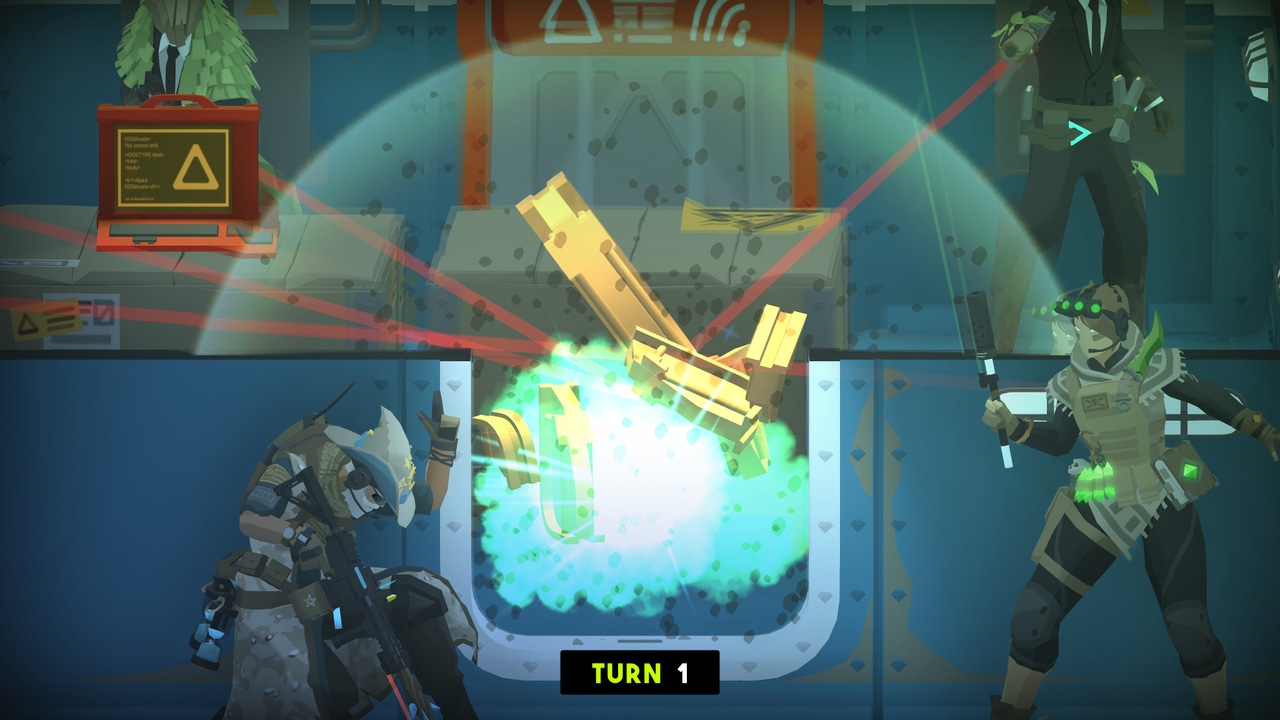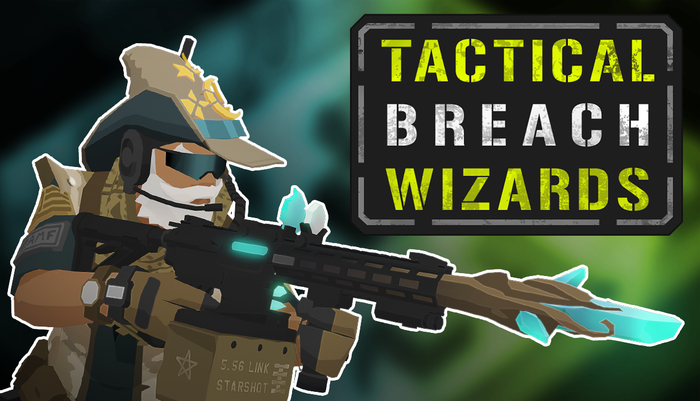Trending
Opinion: How will Project 2025 impact game developers?
The Heritage Foundation's manifesto for the possible next administration could do great harm to many, including large portions of the game development community.

Featured Blog | This community-written post highlights the best of what the game industry has to offer. Read more like it on the Game Developer Blogs or learn how to Submit Your Own Blog Post
Here's an inside look at the creative process, inspirations, experiences, and challenges behind the score for Tactical Breach Wizards.
November 13, 2024

Within this article, I will be going over various aspects of my score for Tactical Breach Wizards, including my creative process, inspirations, experiences, challenges, and reflections post-release. I hope that this gives hopeful composers some behind-the-scenes insight into the production of a full game score.
I feel like the biggest obstacle for any score, whether it’s a film, game, or other type of media, is to land the vision correctly and stay true to it. When I sent my work to Tom over at Suspicious Developments when he announced the composer opening, the two tracks that helped me stand out were two trailer tracks I had written that heavily used percussion. With that in mind, I wanted to ensure that percussion was at the forefront when the game called for more serious or dramatic music mixed with orchestral and sometimes electronic elements. It helped that I was a trailer composer, so I had access to a fair bit of trailer samples to bring some punch and intensity.
In Tactical Breach Wizards, there are four main acts and a prologue to start the game, showing the last mission between Liv and Zan. Along with the references Tom had sent to me, I also wanted to try to give each act a different direction while staying true to the vision of the overall score, sometimes with different instrumentation focuses, such as Act 1 (DSR) having a lot of synths and a lead electric guitar, a choir for when dealing with Chapel in Act 3 (Kalan), and using bells to put the players in a historical setting in Act 4 (Medil). The prologue is more of an opening sequence made of two more orchestral tracks with some of my favorite trailers, SFX.
The two outliers with the vision of the overall soundtrack were “At Ma’s” and “The Necromedic,” which were Reggae and Jazz, respectively.

When it came to the challenges of writing the soundtrack, at times, I was my own worst enemy, which I will talk more about later in this article. At times, my own tools led to limits I had to overcome. Sometimes, it was my production level at the time. The challenges all led me to find creative ways to overcome them, and eventually, they all went away fairly quickly. Don’t be afraid to face them head-on, as you may be surprised by what you can do.
Overall, the score was meant to have different militaristic elements mixed with elements that worked well with the setting. I thought back to older game scores and developed ideas of what I liked from those scores. Some of it was the use of percussion, some of it was the use of synths, and some was the use of strings and brass, which I loved.
I remember once trying to take the whimsical approach when the players were selecting their perks; however, it didn’t work. There were other moments I attempted it, but it never stuck. I do know that when you think of wizards and magic, you think whimsical and fantasy, but that had no place here! We had a more gritty theme that went with this, though there was a lot of humor around them.

When working on the score, I went through an evolution over the three and a half years I was involved with Tactical Breach Wizards. In ways, my process was all about experimentation with sounds, textures, and themes, but as time went on, my process evolved into a more methodical approach, mainly thanks to my studies with Penka Kouneva, who helped me clean up my methods, have more of a detailed plan with each cue, and most importantly, executing it. I know that has been a common issue, so it was very important for me to get it right. This also showed an evolution of the score with sometimes more complex writing in the latter half of the soundtrack.
Also, I had really worked on my production skills so I could achieve great results with whatever orchestral libraries and synths I owned at any time. I should also thank developers such as Rocky Mountain Sounds (Complexity, Majestica 2, etc.) for making great libraries and expansions that really contributed to the soundtrack in various ways.
With all that said, all of these changes led to an issue I hadn’t accounted for, such as having to go back to a few older tracks and use what I learned to improve their quality. Keep in mind that if you’re working on a score over the course of several years and are still really developing, you may be in a similar position!

Over the course of the beta rounds, the feedback was great, but there was one surprise. The Necromedic stood out to many players in a good way, and it showed when looking at the feedback for the score. It was the favorite, which honestly made me chuckle because I didn’t consider my jazz chops to be much to write about. This process has shown me to be open to such nice surprises.
The overall reception to the soundtrack upon release had been something I was nervous about as this is one of the first times many people would hear my work, AND they know my name behind it as many other projects I worked on (trailers and films) didn’t thrust me into the open like this one did, especially with that hype around it. I appreciate the great response to the game and the soundtrack, and I hope more people play Tactical Breach Wizards, as the game is awesome with great writing, level design, art, and more.
When I look back at the soundtrack as a whole, I plan to keep using the knowledge gained during the experience and continue writing great scores, as this has so far been my best work. You never truly know how you will handle the challenges thrown at you at work like this until you’re in the thick of it, and I urge everyone to pursue these challenges. I really hope you enjoy the score as much as I enjoyed writing it.
You May Also Like